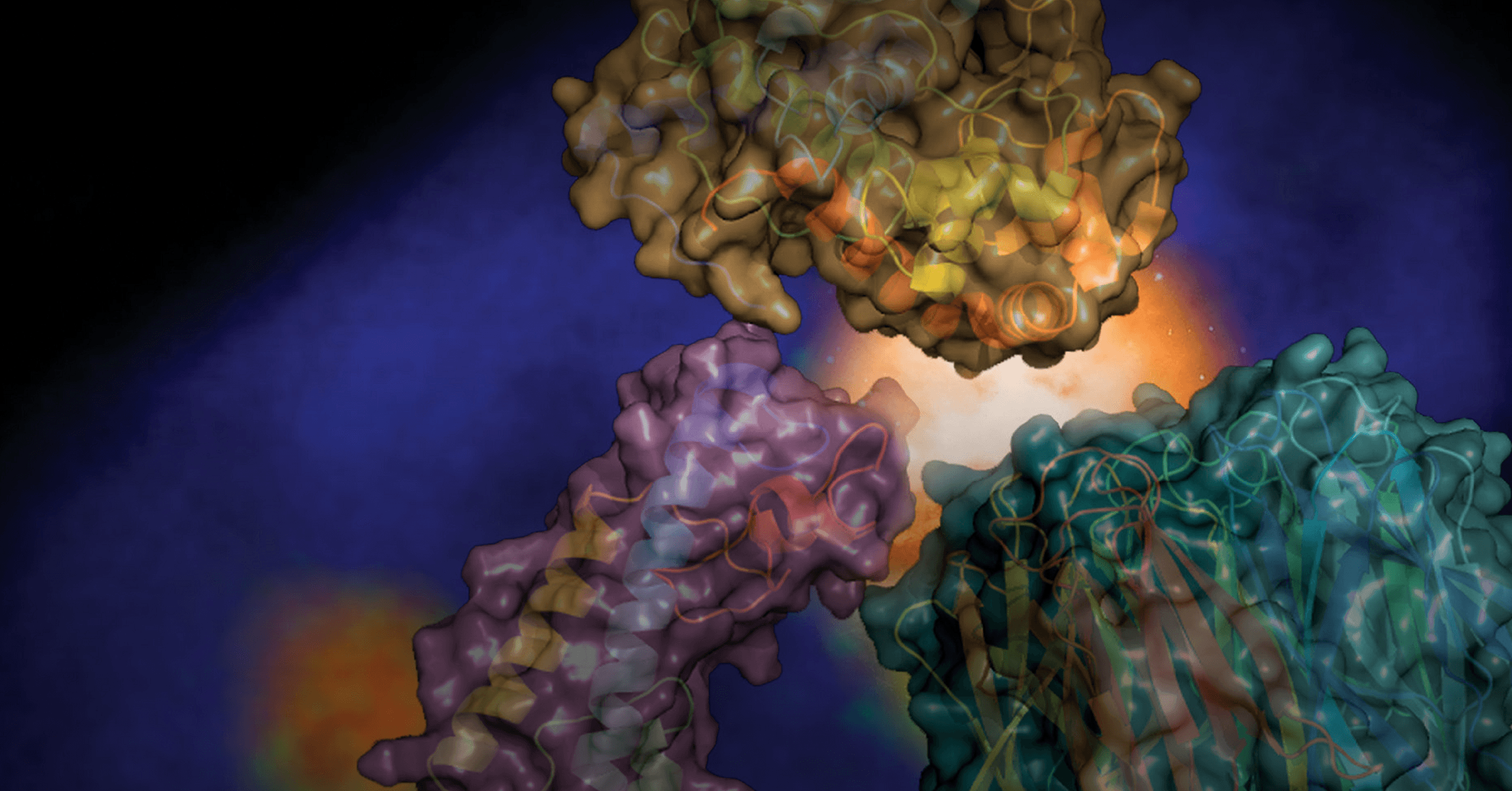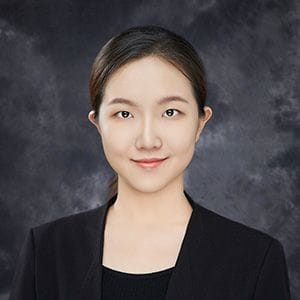The Gordon Hammes Awards collectively celebrate significant achievements in biological chemistry, recognizing both established scientists whose work has profoundly impacted the field and young scholars for their outstanding published research.

Biochemistry and the ACS Division of Biological Chemistry are pleased to announce the winner of the 2024 Gordon Hammes Lectureship Award, Dr. Michelle Arkin of The University of California San Francisco, and the winner of the 2024 Gordon Hammes Scholar Award, Ziqi Ren of Peking University.
The awards will be presented at ACS Fall 2024 in Denver, CO on Tuesday, August 20, where the winners will each present a lecture along with other prominent researchers in the field. The Symposium will be held from 9:00am to 11:50am (Mountain Time) at the Sheraton Denver Downtown Hotel, Governor’s Square 12 room.
Learn more about the winners and their research below.
Dr. Michelle Arkin, 2024 Gordon Hammes Lecturer

Michelle Arkin is a Professor and Chair of Pharmaceutical Chemistry and Executive Director of the Small Molecule Discovery Center at the University of California San Francisco (UCSF). Her research focuses on methods and molecules that modulate currently ‘undruggable’ targets, including protein-protein interactions. She was an NSF predoctoral fellow in Jacki Barton’s at Caltech and aDamon Runyon Cancer Research postdoctoral fellow with Jim Wells at Genentech. Before moving to UCSF in 2007, Dr. Arkin was the Associate Director of Cell Biology at Sunesis Pharmaceuticals. At Sunesis, she helped develop inhibitors of protein-protein interactions, including interleukin-2 and LFA-1 (lifitigrast). She is a cofounder of Elgia Therapeutics and Ambagon Therapeutics.
The Gordon Hammes Lectureship Award recognizes and honors an individual whose scientific contributions have had a major impact on research across all of biological chemistry. Dr. Arkin was selected for this award due to her work on chemical and biological probes of protein-protein interaction networks and covalent inhibitors of ‘undruggable’ targets, especially focusing on age-related diseases such as chronic inflammation, cancer, and neurodegeneration. She is also well known as a leader in the chemical biology and drug discovery community, serving in many leadership roles for organizations, companies, and journals.
What does this award mean to you?
This lectureship is special! First, Ziwen Jiang, a postdoc in my lab (and soon-to-be Assistant Professor), nominated me; that made the award a nice surprise for both of us. The organizers have set up an exciting symposium, and I am looking forward to hearing some exciting work in biochemistry and chemical biology. Finally, I am excited to talk about the Alzheimer’s Disease project and to share the team’s beautiful work.
How would you describe your research to someone outside your field?
We design drug-like molecules that precisely target disease-related proteins. One goal is to better define how to intervene in disease biology. Conversely, many proteins are known to be involved in disease, yet we do not know how to develop drug molecules that modulate these proteins. We develop approaches to inhibit or activate such ‘challenging targets’ to expand the types of proteins amenable to drug discovery.
What do you think is the biggest challenge currently in your area of research?
Oh, so many. For the biological chemistry audience, how do we make the connection between a protein’s structure and dynamics (that we can measure biophysically) with its structure and dynamics in the constrained environment of cells?
What is next in your research?
On the chemistry side, I want to solve the ‘fragment linking problem.’ The field knows how to find little molecules that bind to the aforementioned ‘challenging targets’ but combining them to make potent ligands is still an art form based on high-resolution structural data. Can we develop more and more general approaches?
On the biology side, I am fascinated by rare diseases that arise from a mutation that causes a modest change in the function of an essential protein. Our challenge is to make drugs that restore equilibrium, which seems like a subtle—and thought-provoking—goal.
What would your advice be to someone just starting out in the field?
In drug discovery and chemical biology, today’s taboo can become tomorrow’s Standard Operating Procedure. As a corollary, new technologies tend to go through multiple hype cycles before they succeed. So, keep an open mind to the data, explore diverse approaches, and work on your best ideas, even if they are not in style at the moment.
Ziqi Ren, 2024 Gordon Hammes Scholar

Ziqi Ren currently is a graduate student in Prof. Peng Zou’s lab of college of chemistry and molecular engineering in Peking University. She started her phD training in 2019. She is now working on development and application of proximity labeling methods on subcellular nucleic acid molecules. She utilized an enhanced APEX-seq labeling strategy with higher sensitively to profile the RNA composition in the lumen of endoplasmic reticulum in human embryonic kidney 293T cells and rat cortical neurons, revealing the evolutionarily conserved existence of RNAs in ER lumen which provides strong experimental support for RNA glycosylation in the secretory pathway. During the same period, she used a photo-activated proximity labeling strategy to profile the RNA components in microscopically invisible SG cores as well to map the kinetics of RNA dissociation during SG disassembly. In the future, she will start career in industry and continue to work in the field of biochemistry.
The Gordon Hammes Scholar Award honors young scientists responsible for the very best papers published in Biochemistry. Ms. Ren was selected for this award due to her exciting doctoral work, where she implemented a complex technique to provide critical new insights that push the boundaries of RNA biology. The work from Ren et al. applies advanced methods to tackle RNA dynamics and localization, and the results both challenge existing ideas of RNA organization and provide critical evidence regarding the recent discovery of glycosylated RNA species.
What does this award mean to you?
Biochemistry has always been a trustworthy journal in the field of chemical biology, and it is truly an honor to receive this award.
How would you describe your research to someone outside your field?
We develop chemical and biophysical tools to map cellular activities at high spatiotemporal resolution, and we apply these tools to investigate the underlying biological macromolecules, physical forces, and chemical signaling that give rise to cellular functions.
What do you think is the biggest challenge currently in your area of research?
In my opinion, we still need more general proximity labeling methods that can provide high spatiotemporal resolution labeling in living organisms. Ultimately, we need to discover credible molecule targets that contribute to important life processes from the obtained dataset.
What is next in your research?
I will start my career in industry and keep working in the field of molecular biology.
What would your advice be to someone just starting out in the field?
Keep reading literatures can help quickly understand the research area and find interest, which can also provide the potential of creativity, and ideas are usually generated from reading and practicing.

